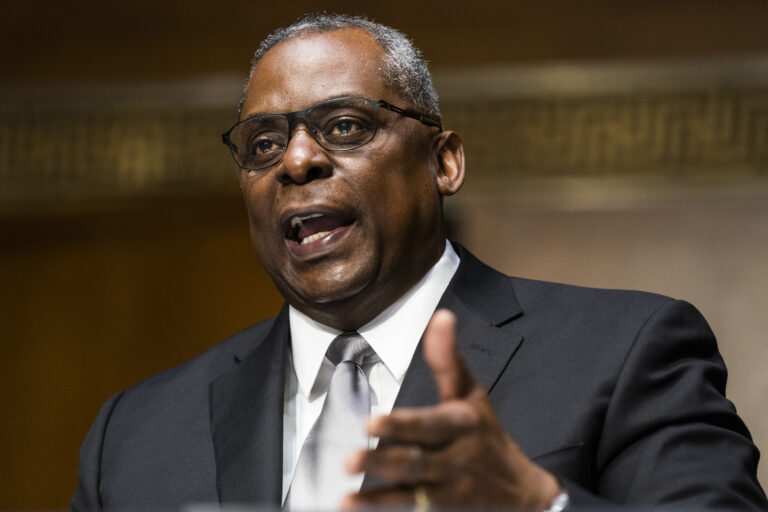
President Joe Biden learned of Defense Secretary Lloyd Austin’s hospitalization this week several days after the fact and received no advance notice from Pentagon officials, people familiar with the matter said.
The Defense Department announced Austin’s hospitalization at Walter Reed Medical Center on Friday, four days after he was admitted on Jan. 1 and without providing specifics on his ailment or the elective treatment he received.
Several U.S. senators privately expressed concern that they weren’t informed sooner. Sen. Tom Cotton, a Republican from Arkansas and U.S. Army veteran, called on Austin to address an earlier news report of the notification gap and said in a statement “there must be consequences for this shocking breakdown” if true.
Biden was informed of Austin’s hospitalization on Thursday by his chief of staff, Jeff Zients, and his national security adviser, Jake Sullivan, according to two people who asked not to be identified discussing internal communications. A spokesperson for the White House’s National Security Council declined to comment on Saturday. Politico reported earlier on the time lapse.
Austin responded on Saturday with an apology for failing to inform the public for days, while saying he’s on the mend and expects to return to the Pentagon “soon.” His statement didn’t address his communications with the White House.
Austin said “I recognize I could have done a better job ensuring the public was appropriately informed. I commit to doing better.” But he also emphasized that “this was my medical procedure, and I take full responsibility for my decisions about disclosure.”
NBC News reported Saturday that Austin, 70, spent four days in intensive care at Walter Reed and was unable to perform his duties since Jan. 1.
In Friday’s announcement, the Pentagon said Deputy Defense Secretary Kathleen Hicks was prepared to exercise the secretary’s powers at all times “if required” during Austin’s hospitalization.
Asked for specifics on the Austin’s health problem, what elective treatment he had before entering Walter Reed National Military Medical Center in Maryland on Jan. 1 and why his hospitalization had not been announced earlier, a Defense Department spokesperson declined to comment, citing Austin’s concerns about his privacy.
Austin’s hospital stay covered the time when the U.S. killed an individual it said was a senior figure in an Iranian-backed militant group in Baghdad. A Pentagon spokesman said Austin had already authorized the action and was aware of it.
___
© 2024 Bloomberg L.P
Distributed by Tribune Content Agency, LLC.
0 comments :
Post a Comment